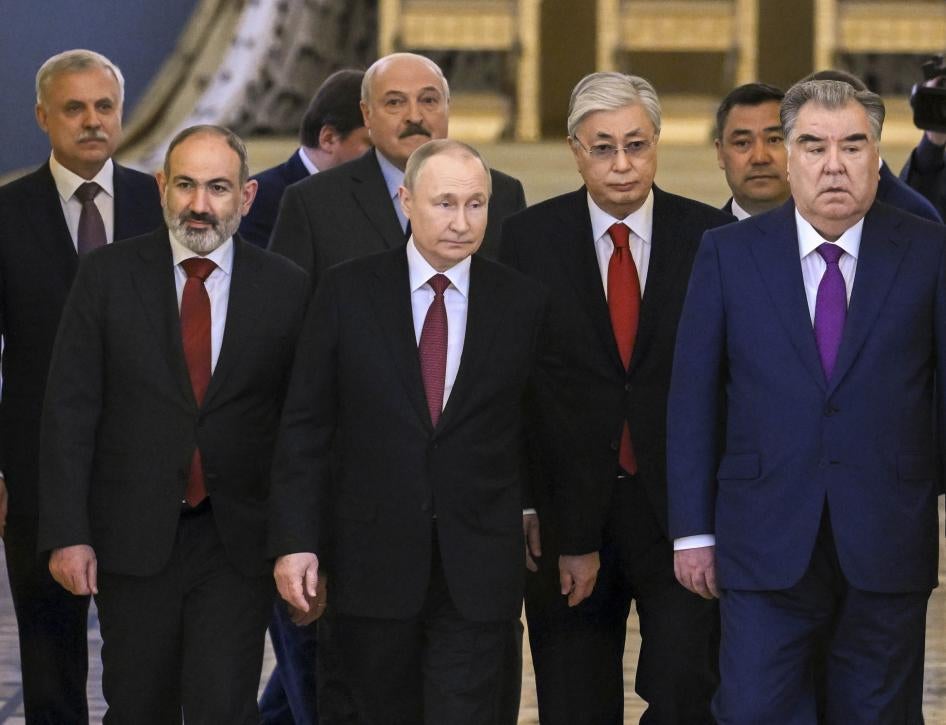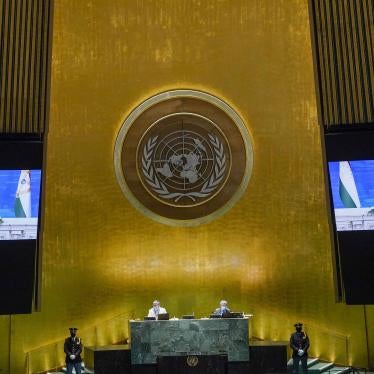(Berlin) – Tensions have been rising in an autonomous region of Tajikistan with several incidents of violence after protests over harassment of local people by Tajik authorities, Human Rights Watch said today.
On May 16, 2022, a local man, Zamir Nazrishoev, 29, was killed during protests in Khorog, the capital of the Gorno-Badakhshan autonomous region. The next day police reported that he and several other young men had organized an armed attack on police forces, wounding three officers, and was fatally shot during this attack. However, media reported witnesses claiming that Nazrishoev was killed with live ammunition in unclear circumstances. The Tajik government announced on May 18 that it was moving military forces into the region as part of an anti-terrorism operation. Media published unconfirmed reports of several civilians killed during the May 18 operation.
“The government of Tajikistan should strictly observe its obligations to respect and protect people’s rights to life, and freedom of assembly and the media in any military or law enforcement operations in Tajikistan’s autonomous region,” said Syinat Sultanalieva, Central Asia researcher at Human Rights Watch. “The authorities should provide a platform for constructive dialogue with protesters, refrain from excessive use of force, and ensure that any detainees are guaranteed full due process.”
Protests in the region started on May 14, when a meeting of traditional “elders” was held in Khorog to discuss alleged harassment and persecution by Tajik authorities, which since 2012 has periodically escalated to violent stand-offs between the population and the military. At the conclusion of the meeting, the elders and protestors who had joined them demanded the resignation of the centrally appointed head of the region, Alisher Mirzonabot; the release of everyone arrested in connection with protests in November 2021; and an end to alleged blackmailing, harassment, and kidnapping abroad of people from the region for their alleged involvement in opposition activities.
On May 16, after the central government refused to consider these demands, the protesters announced open-ended protests in the region. However, on May 17, when Khorog residents attempted to reach the city’s central square, the police blocked them and dispersed them using teargas. On the same day, internet access in the region was cut off and has not been reinstated. Mobile communications are functioning at low bandwidth.
Asia Plus, an independent media outlet in Tajikistan, announced on May 17 that it would no longer cover the events in Khorog. Asia Plus had earlier been formally warned by the Prosecutor General’s Office that it considered the outlet’s coverage of the November protests to be “one-sided” and that the outlet could be closed down.
Also on May 17, four journalists from the media outlets Radio Ozodi and Current Time were attacked after they interviewed a local activist and independent journalist, Ulfathonim Mamadshoeva, whom the police accuse of co-organizing the May 16 protests. The unidentified attackers stole the journalists’ equipment and mobile phones; and severely beat and threatened to kill one of them.
Tajik authorities should respect freedom of speech and access to information, including access to the internet and the right to peaceful protest. They should investigate the cause of violence in recent protests and hold those responsible to account. The country’s regional and international partners should also hold Tajikistan accountable to its human rights obligations.
“As this crisis unfolds it is crucial for the Tajik authorities to uphold their international human rights obligations and facilitate dialogue to secure a resolution based on respect for fundamental rights,” Sultanalieva said. “The police have obligations to exercise restraint in engaging with protesters, safeguarding everyone involved.”








